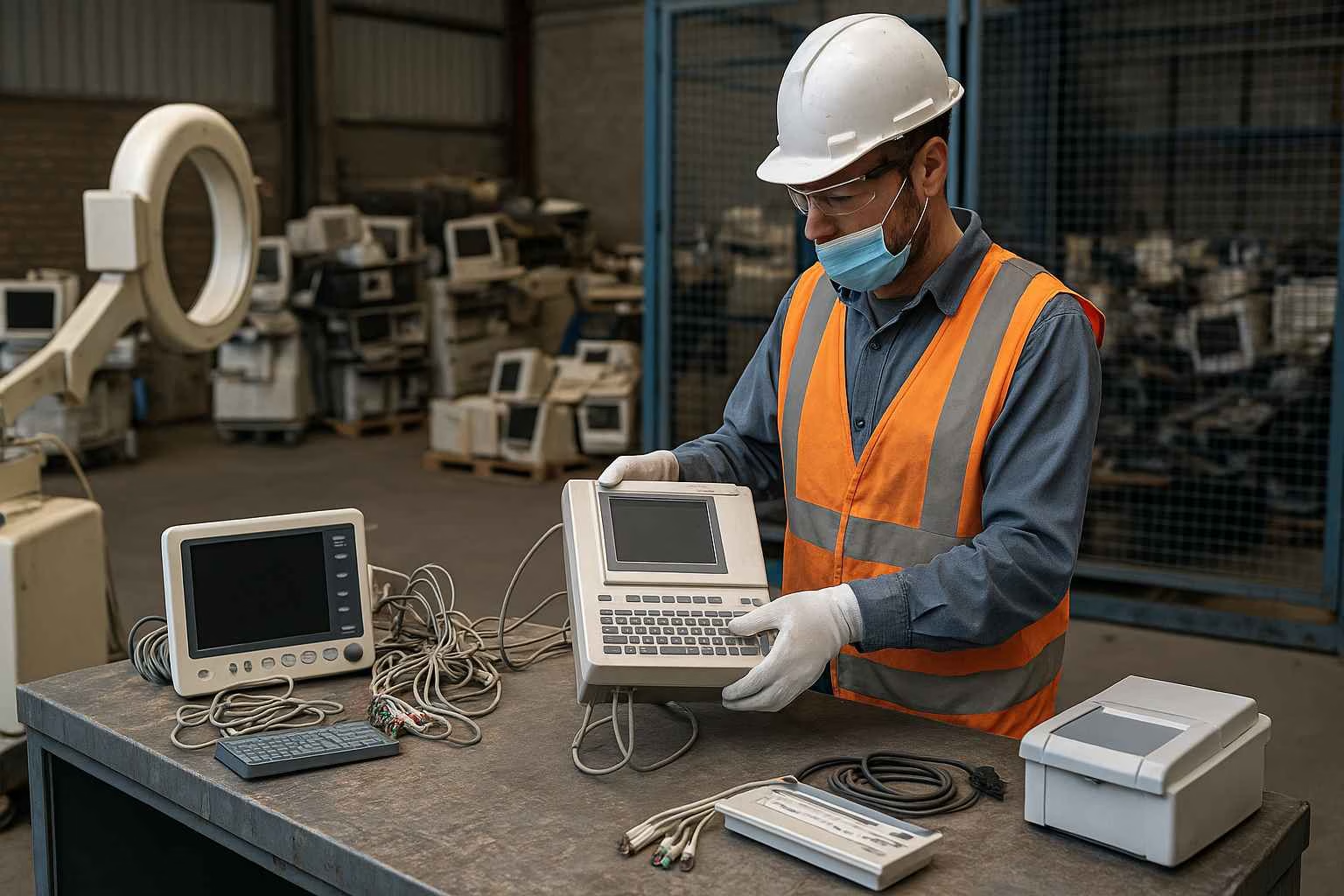7 Amazing Benefits of Using Medical Equipment Recyclers

In today's world, medical equipment recyclers are providing an essential service for a more sustainable healthcare industry. The constant evolution of medical technology means that hospitals, clinics, and other facilities are regularly upgrading their equipment, leading to a significant amount of obsolete machinery. The question of what to do with this end-of-life equipment is crucial for both environmental protection and responsible business practices. This comprehensive guide will explore the vital role these specialized companies play, with a particular focus on medical equipment recyclers in Australia, including those serving major metropolitan areas like Melbourne and Sydney.
The healthcare industry is a massive consumer of resources, and the waste generated from disposing of old medical devices is a growing concern. Traditional disposal methods, such as landfills, are not only environmentally harmful but can also be non-compliant with strict regulations. This is why the demand for expert recycling services is higher than ever.
The Vital Role of Medical Equipment Recyclers
The primary function of a medical equipment recycler is to provide a safe, compliant, and sustainable alternative to traditional waste disposal. Medical devices are often a complex mix of materials, including plastics, various metals, and sensitive electronic components. Many of these materials are non-biodegradable and can contain hazardous substances like lead, mercury, or cadmium.
A professional recycling service ensures that these materials are handled correctly. They have the expertise and technology to safely dismantle equipment, separate the different components, and process them for reuse. This prevents toxic substances from contaminating soil and water, while also recovering valuable raw materials that can be used in new manufacturing.
Choosing the Right Medical Equipment Recycler in Australia
When seeking a partner for medical equipment recycling, it's essential to look for a company with a strong reputation and the right credentials. A key factor is compliance with both local and national environmental regulations. The best medical equipment recyclers in Australia will be certified by relevant industry bodies and will be able to provide clear documentation of their processes.
A trustworthy recycler will also offer secure data destruction services. Many modern medical devices store sensitive patient information, and the safe and complete wiping of this data is a non-negotiable requirement. This is especially true for equipment like patient monitors, diagnostic machines, and imaging systems.
Leading the Way: Medical Equipment Recyclers in Melbourne
As a major hub for healthcare services, Melbourne has a high demand for reliable and efficient recycling solutions. The medical equipment recyclers in Melbourne are at the forefront of this industry, offering comprehensive services that cater to the unique needs of the city's hospitals, clinics, and research facilities. They provide convenient collection services and operate advanced facilities capable of processing a wide array of equipment.
By partnering with a local expert, healthcare providers can streamline their disposal process, reduce costs, and contribute to the city's sustainability goals. These companies understand the logistical challenges of a bustling urban environment and offer flexible scheduling to minimize disruption.
Innovative Solutions from Medical Equipment Recyclers in Sydney
Sydney's dynamic healthcare sector also relies on a network of dedicated recycling companies. The medical equipment recyclers in Sydney are known for their innovative approaches to waste management. They often work closely with their clients to develop bespoke recycling strategies that address specific types of equipment and volume requirements.
These recyclers are not just focused on disposal; they are also key players in the circular economy. By recovering and processing materials that can be fed back into the manufacturing cycle, they are helping to create a more resilient and sustainable supply chain. This forward-thinking approach sets a high standard for responsible resource management in the region.
How the Recycling Process Works
The journey of a piece of equipment from a hospital floor to a recycled material is a carefully managed process. It begins with collection and secure transportation to a specialized recycling facility. Here, the equipment is meticulously dismantled.
Each component is then sorted based on its material type—plastics, different metals (like steel, copper, and aluminum), and electronic boards. These sorted materials are then sent to dedicated processors. Plastics are shredded and melted, metals are refined, and precious metals are extracted from electronics. This detailed process ensures that as much material as possible is recovered and reintroduced into the economy.
A Sustainable Future with Medical Equipment Recyclers
The future of medical waste management is intertwined with the growth and innovation of the recycling industry. As environmental consciousness grows and regulations tighten, the role of professional medical equipment recyclers will only become more central. They are not just waste managers; they are partners in building a more sustainable and responsible healthcare system.
By choosing to work with these experts, healthcare providers are making a powerful statement about their commitment to protecting the environment and promoting a healthier planet. It's a choice that benefits everyone, from the local community to the global ecosystem.
